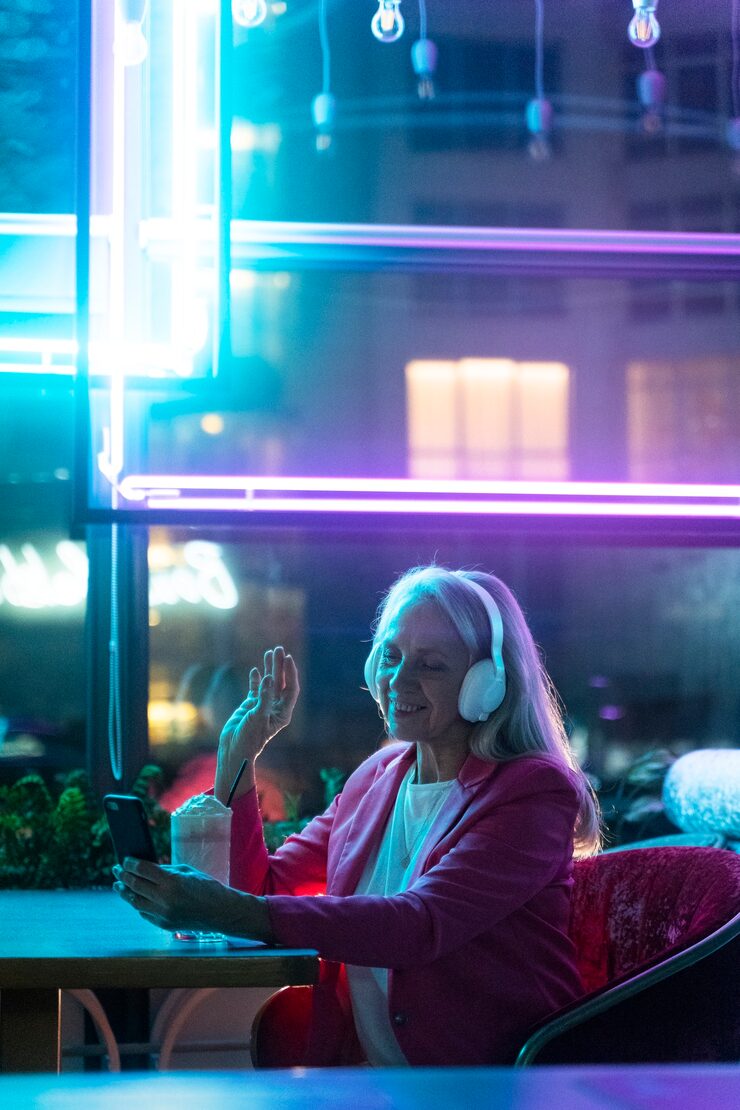The way we experience music has changed forever. As technology continues to evolve, virtual concerts are reshaping how artists connect with their fans. From 3D performances and VR stages to global live streams, the music industry 2025 is entering a new digital era — one that blends creativity, technology, and accessibility like never before.
What started as a pandemic necessity has now become a cultural shift. Let’s dive into how the digital music experience is redefining the future of live entertainment.
1. The Rise of Virtual Concerts
Virtual concerts exploded in popularity after 2020, when artists sought new ways to perform amid restrictions. Today, they’re more than a trend — they’re a multi-billion-dollar market.
Platforms like Fortnite, Roblox, and YouTube Live have hosted record-breaking events featuring global stars. Fans can now attend concerts from their living rooms — no tickets, no travel, just immersive experiences powered by VR and AR.
Virtual events are no longer “alternatives” — they’re redefining what it means to attend a live show.
2. The Digital Music Experience
A digital music experience goes beyond watching a stream — it’s about interaction and personalization. Fans can now:
-
Create custom avatars to attend concerts virtually
-
Interact with other fans in real-time chatrooms
-
Access exclusive backstage content or artist Q&As
This interactive nature makes every virtual concert feel unique, personal, and memorable — something traditional shows can’t always replicate.

3. New Revenue Streams for Artists
For musicians, the music industry 2025 offers more opportunities than ever before. Artists can monetize virtual events through:
-
Digital tickets and memberships
-
Virtual merchandise (NFTs, avatars, skins)
-
Brand partnerships with tech companies
-
Post-show replays available on-demand
By cutting out physical venue costs, artists can reach global audiences with lower overhead and higher profits.
4. Accessibility and Global Reach
Virtual concerts remove geographical barriers, allowing fans from around the world to attend without spending on travel or accommodation.
This democratization of live music means a fan in India, the USA, or Brazil can experience the same concert at the same moment. It’s a digital music experience that unites people across borders — music without limits.
5. The Role of AI and Technology
AI plays a major role in shaping the music industry 2025. From stage design to audience engagement, artificial intelligence helps personalize the fan experience.
For example:
-
AI tools create custom lighting and soundscapes based on fan reactions.
-
Virtual assistants manage crowd interactions and song requests.
-
Data analytics help artists understand audience preferences in real time.
The result? Smarter, more interactive performances that evolve as the concert unfolds.
6. Virtual Reality: The Next Stage
Virtual Reality (VR) is pushing concerts into another dimension. With VR headsets, fans can step into a 3D environment, stand front row, or even “walk” backstage.
These immersive experiences make virtual concerts feel almost as real as physical ones — and in some cases, even better. The future of the digital music experience will rely heavily on virtual and augmented reality innovation.
7. Hybrid Events: The Best of Both Worlds
The music industry 2025 is embracing hybrid events — concerts that combine live audiences with virtual participation.
For example, a stadium may host 50,000 people physically, while millions join virtually worldwide. This approach multiplies audience reach and enhances accessibility without sacrificing the excitement of live energy.
8. Challenges of the Virtual Concert Revolution
Despite the innovation, virtual concerts face challenges:
-
Internet connectivity can affect quality.
-
Not all artists can afford advanced VR setups.
-
Fans may miss the physical energy of live crowds.
However, as technology improves and costs drop, these barriers are expected to shrink — paving the way for even more inclusive and affordable shows.
9. The Future of the Music Industry 2025
By 2025, the music industry is expected to become one of the most digitized creative fields. Record labels and tech startups are investing heavily in AI-driven concerts, NFT merchandise, and immersive fan platforms.
This evolution proves one thing: the future of music isn’t just about sound — it’s about experience.

Conclusion
The era of virtual concerts has arrived, transforming how artists perform and how fans experience music. The music industry 2025 will thrive on innovation, accessibility, and creativity — powered by technology and human connection.
The digital music experience is more than entertainment; it’s a revolution changing how the world listens, feels, and connects through music.
FAQs
Q1. What are virtual concerts?
A: Virtual concerts are live music performances streamed online, often using VR or AR to create immersive experiences.
Q2. How are virtual concerts changing the music industry?
A: They provide global reach, new income sources, and interactive fan experiences that redefine traditional performances.
Q3. Will physical concerts disappear?
A: Not entirely — instead, hybrid models will dominate the music industry 2025, blending live and virtual audiences.


